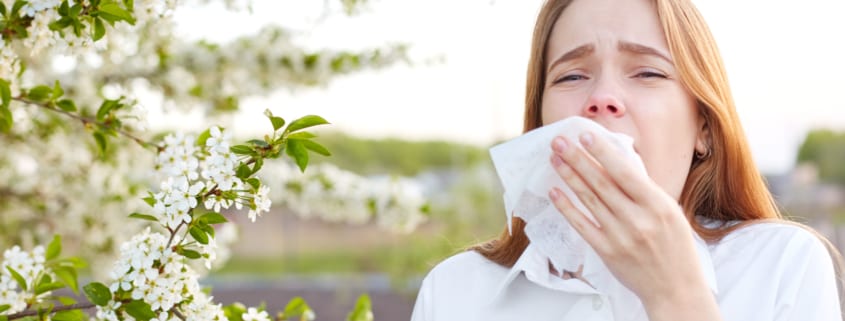Understanding Adult Onset Allergies
What is it with allergies? As an adult, you’re fine one day and not the next. What causes allergies to kick in, when you’ve gotten this far in life without them? Research shows adult onset allergies are common, and the numbers are growing. Knowing why is the part that still eludes us.
What Are Allergies?
An allergic reaction happens when your body misidentifies something as harmful. In response, the body produces infection-fighting immunoglobulin E (IgE), which causes certain cells to release a chemical known as histamine. This, in turn, causes inflammation, resulting in symptoms such as itching, watery eyes, sneezing and fatigue. In fact, the first time you experience an allergy as an adult, it can feel a lot like you’ve come down with a cold that won’t go away.
If an allergic reaction is severe you can experience anaphylactic shock, which causes your blood pressure to drop suddenly and narrows airways, which blocks the airways.
Common Adult Onset Allergies
Research shows that 18 million American adults have hay fever, or allergic rhinitis caused by pollens, grasses, weeds, molds, pet dander and dust mites.
Food allergies can also begin in adulthood. Common food allergies are peanuts, tree nuts like walnuts and shellfish. Some people are allergic to penicillin and other medications. A person can also be sensitive to egg, milk, soy, wheat and sesame.
Why Does an Allergy Show Up in Adulthood?
Adult allergies usually start when the person is in their 30s or 40s, but are also seen in people in their 50s, 60s and beyond.
Just why adults suddenly experience allergies remains a bit of a mystery. You can spend years feeling great, then suddenly, one day, the wheezing begins. There are theories, such as one thought that we grow up in clean environments that don’t “inoculate” the body properly to fight allergies off. This theory remains unproven.
How to Manage Adult Onset Allergies
Since we haven’t yet figured out how to keep adult allergies from happening at all, our best bet is to manage the symptoms. If you can’t avoid allergens that cause your allergies to kick in, over-the-counter allergy medications and antihistamines can help keep symptoms in check.
If it seems that nothing is helping much, consider seeing your doctor about immunotherapy, or allergy shots. You’ll be tested for a variety of possible allergies, and once the physician identifies exactly what you’re reacting to your treatment can be tailored to your needs. If you have more severe food allergies, you may be prescribed epinephrine; when you have a bad reaction to something you ate, a shot of epinephrine stops symptoms quickly.

 EINSURANCE
EINSURANCE EINSURANCE
EINSURANCE EINSURANCE
EINSURANCE